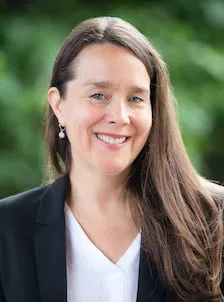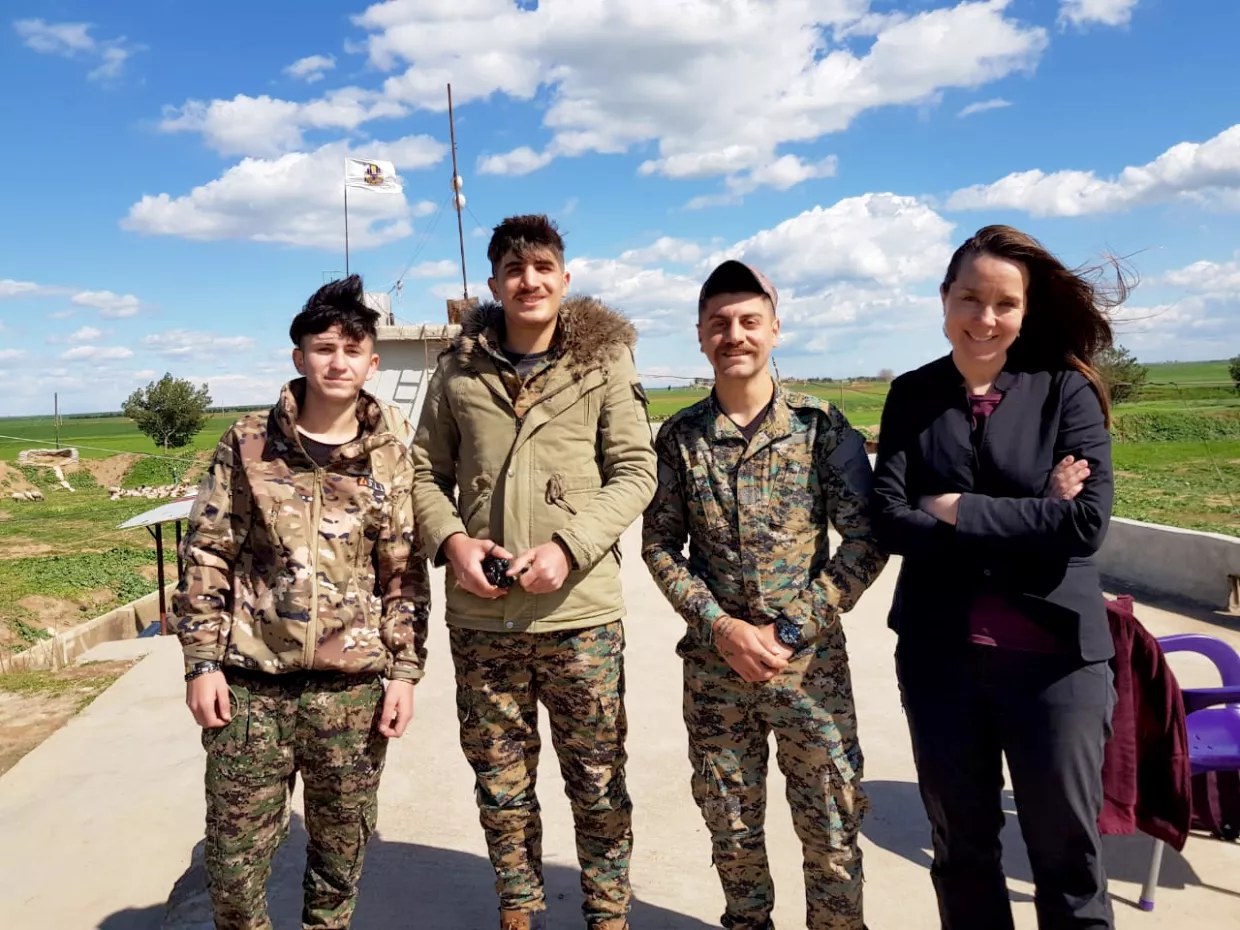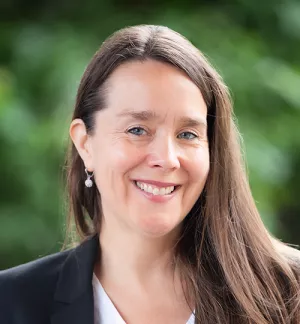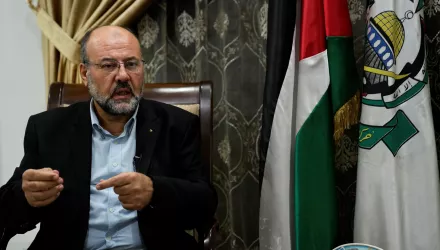
Amy Austin Holmes is the Kuwait Foundation Visiting Scholar with the Belfer Center’s Middle East Initiative. An Associate Professor of Sociology at the American University in Cairo, she has lived and taught in the Middle East since 2008. She conducts extensive fieldwork on interdisciplinary issues related to Syria, Iraq, Egypt, Turkey, Tunisia, Bahrain, and Germany, and is an expert on minority groups such as Kurds, Syriac-Assyrian Christians, and Nubians. A former Fulbright scholar, she is the author of the 2019 book Coups and Revolutions: Mass Mobilization, the Egyptian Military, and the United States from Mubarak to Sisi, Holmes publishes extensively and provides expert briefings to Congress and the House of Lords.
We asked Amy Austin Holmes about her work:
Q. Between 2015 and 2019, you spent significant time in all six provinces of Northeast Syria, researching and conducting the first-ever field survey of the Syrian Democratic Forces (SDF). What did you learn?
My original survey data allowed me to show that the way everyone was describing the SDF was wrong. It’s not a “Kurdish force” but a multi-ethnic force in which Arabs are now in the majority and, includes the Syriac-Assyrian, Yezidi, and Turkmen minority as well. That’s why it’s also misleading to talk about the “Rojava Revolution,” because it’s expanded beyond the Kurdish regions of Syria to encompass one-third of the country. Both Obama and Trump decided to make counter-ISIS our primary objective in Syria. That meant everything else happening beyond the frontlines received less attention – including the creation of a decentralized form of self-rule that operates with autonomy from Damascus. The SDF is part of this experiment; it’s not just a military force but is a window through which to understand the political project.
Q. While you were in Syria last year, you produced 40 short videos that you posted on Twitter. Why did you choose to produce these?

I spent years working on a documentary film about U.S. overseas bases that grew out of my PhD research and first book. But in Syria, things change so quickly that I wanted to make short videos that I could post immediately. Back in 2015, many people were inspired by the YPG/YPJ when they liberated Kobane from the Islamic State. But since the Syrian caliphate was defeated in March 2019, and after Trump’s phone call with Erdogan in October, the U.S. along with the other 81 members of the Global Coalition have decided to abandon those very same people. The SDF – and vulnerable Christian and Yezidi minorities they protect – are left to fend for themselves. And they are expected to take care of thousands of other countries’ citizens who left their homes in Europe or elsewhere to join ISIS and are now detained in Al Hol Camp. They are expected to feed and house foreign ISIS detainees indefinitely with little outside support and zero political recognition. These are issues that impact at least all 82 countries in the Coalition, so more than just a small academic audience. If scholars only write for a scholarly audience, a lot of our expertise simply gets lost.
Q. In your new book, Coups and Revolutions, you develop the notion of a "coup from below" to explain the overthrow of former President Morsi in Egypt. What do you mean by that?
When Morsi was ousted in July 2013, the Obama Administration decided not to decide whether it was a coup or not. In part, because it didn’t look like other military coups: civilians were in some ways the protagonists. But it was still a coup. Which means we should have suspended U.S. military aid to Egypt, as required by U.S. law. But we didn’t do that. This was a mistake. If we had immediately suspended aid and condemned the coup, perhaps the Rabaa massacre could have been prevented. So I came up with this notion of a ‘coup from below’ so that if there is ever a similar confluence of bottom-up protests and top-down intervention, we have a way of describing it and could still recognize it as a coup. I further argue that the nature of the coup determined the nature of the crackdown that followed: because civilians were the source of instability they were also the first targets. This resulted in a return to the military-backed regime and ultimately, the triumph (until now) of the counterrevolution. This whole historical process from 2011to 2018 I contrast with the ‘revolution from above’ carried out by Nasser and the Free Officers after 1952.
Q. Egypt and Turkey see each other as adversaries, and yet the state-controlled media in both Egypt and Turkey have criticized your research as somehow dangerous or scandalous. Can you explain why?
Turkey has tried to justify its intervention in Syria by saying that the SDF are all Kurds who are all PKK, but my survey data shows that is inaccurate. The majority of SDF are Arabs. There are also Christians in the SDF who are descendants of survivors of the Armenian Genocide. So my research undermines their talking points. In Egypt, there was a state-controlled media campaign claiming I was part of a conspiracy to tarnish Sisi’s victory in the “elections”. Ironically, the ‘evidence’ for this were not things I had written about the Rabaa massacre, or other human rights violations, but the simple fact that I visited a Nubian resettlement village. Literally just the fact that I went there.
Q. What made you decide to focus your studies and your career on the Middle East?
When I saw a map of the global network of U.S. military bases, I asked myself why we never learned about this in school. That’s what triggered my interest in the Middle East. Then the wave of mass protests across the region beginning in 2010 – incorrectly referred to as the Arab Spring – is what kept me there.
"Q&A with Amy Austin Holmes." Belfer Center Newsletter, Belfer Center for Science and International Affairs, Harvard Kennedy School. (Spring 2020)



